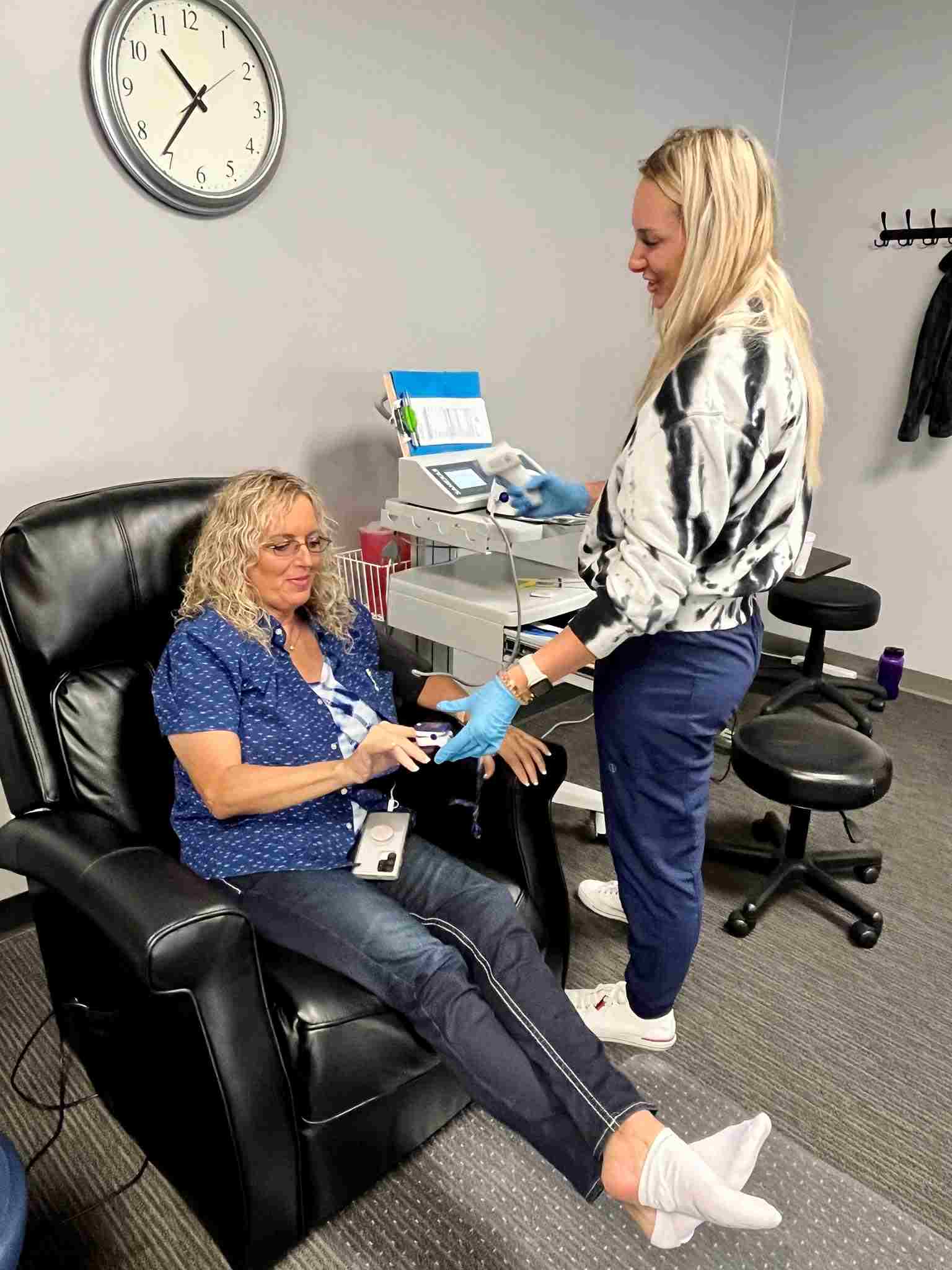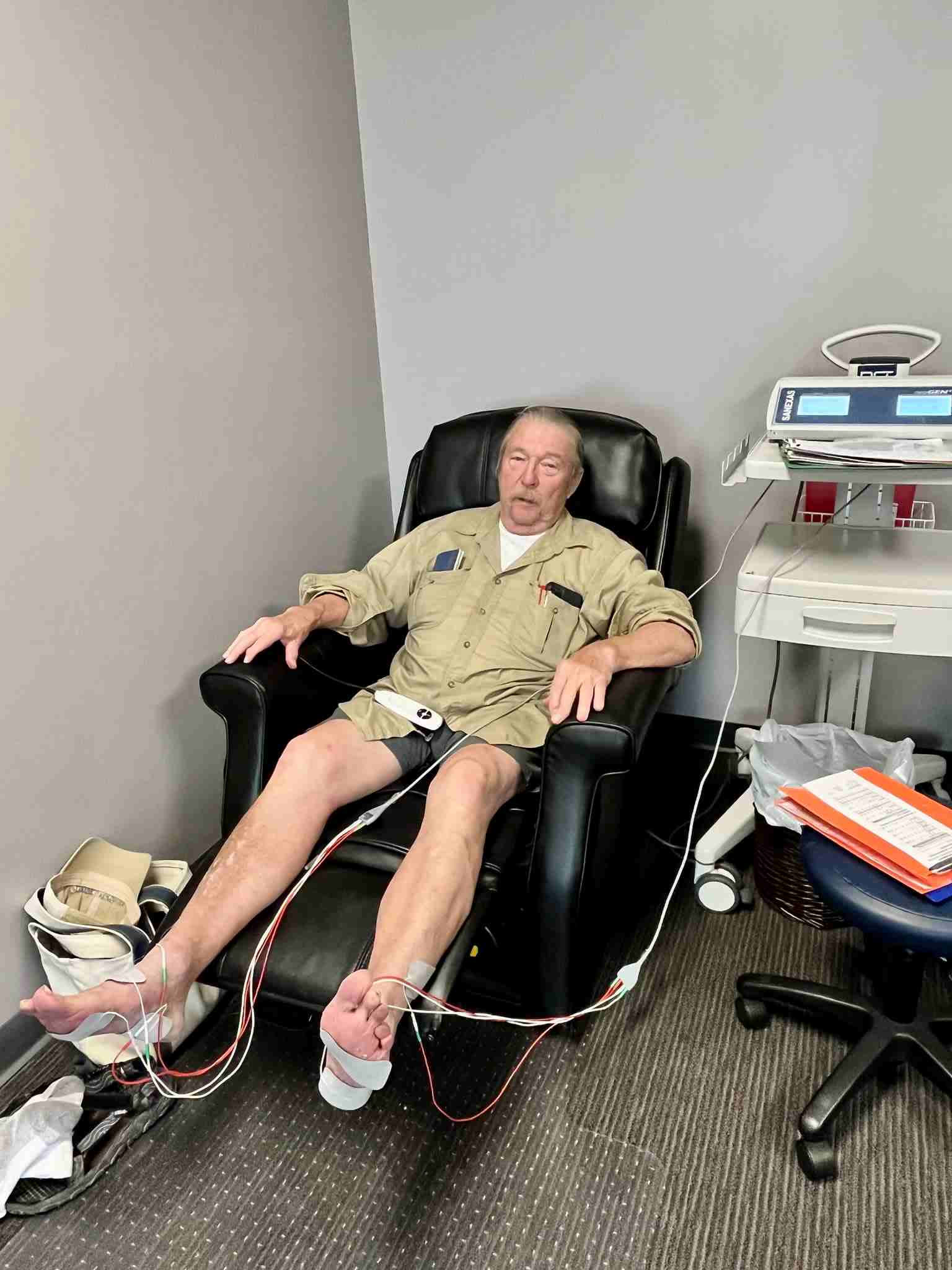Evaluating the Effectiveness of Stem Cell Therapy for Knee Pain
In recent years, stem cell therapy has emerged as a promising frontier in the treatment of knee pain, particularly for those suffering from osteoarthritis or other degenerative joint conditions. Centennial Stem Cell Therapy For Knee Pain . This innovative approach focuses on harnessing the bodys own regenerative capabilities to repair damaged tissues, offering a potential alternative to traditional treatments such as surgery or long-term medication use. Our clinic makes stem cell knee injections centennial co easier than trying to assemble furniture without instructions Within the community of Centennial, a growing interest in stem cell therapy has led to discussions about its effectiveness and the possibility of it being the best solution for knee pain.
Stem cells are unique in their ability to develop into different types of cells in the body. Non Surgical Joint Pain Relief Centennial CO This adaptability makes them a valuable tool in regenerative medicine, as they can potentially repair or replace damaged tissues. For knee pain sufferers, especially those with cartilage damage, stem cell therapy offers the hope of regenerating cartilage and reducing inflammation, which are often the root causes of pain and discomfort.
Evaluating the effectiveness of stem cell therapy for knee pain involves several considerations. Clinical studies have shown mixed results, with some patients experiencing significant pain relief and improved mobility, while others see minimal changes. These varying outcomes can be attributed to factors such as the severity of the condition, the type of stem cells used, and the specific technique employed during treatment. In Centennial, clinics offering stem cell therapy often tailor their approaches based on individual patient needs, which can influence the results.
One advantage of stem cell therapy is that it is minimally invasive compared to surgical options like knee replacement. This aspect is particularly appealing to patients who want to avoid the risks and extended recovery time associated with surgery. Additionally, because stem cell therapy uses cells derived from the patients own body, typically from bone marrow or adipose tissue, the risk of rejection or adverse reactions is minimized.
Despite these potential benefits, its important to recognize the limitations and challenges of stem cell therapy. The field is still in its relative infancy, and more comprehensive research is needed to fully understand the long-term effects and optimal protocols for treatment. Patients considering this therapy should seek consultations with qualified medical professionals to discuss their specific conditions and potential outcomes.
In Centennial, the pursuit of the best stem cell therapy for knee pain involves not only evaluating the effectiveness of the treatment itself but also considering the credentials of the practitioners and the quality of the facilities offering such services. As the field continues to evolve, ongoing research and advancements will likely provide clearer insights into how best to utilize stem cell therapy for knee pain, offering hope for improved quality of life for many individuals.

In conclusion, while stem cell therapy presents an exciting avenue for addressing knee pain, it is essential for patients to carefully weigh the potential benefits against the current limitations. By staying informed and consulting with experienced professionals, those in Centennial and beyond can make educated decisions about whether stem cell therapy is the right choice for their knee pain management.
Comparing Stem Cell Therapy with Traditional Knee Pain Treatments
In recent years, the medical field has witnessed significant advancements in the treatment of knee pain, a common ailment affecting millions worldwide. Among these advancements, stem cell therapy has emerged as a promising alternative to traditional treatments. In Centennial, as in many places, patients seeking relief from knee pain are faced with the decision of whether to pursue conventional methods or explore the potential benefits of stem cell therapy.
Stem Cell Knee Pain Relief Centennial
- Stem Cell Knee Pain Relief Centennial
- Our clinic makes stem cell knee injections centennial co easier than trying to assemble furniture without instructions
- Non Surgical Joint Pain Relief Centennial CO
Traditional treatments for knee pain typically include options such as physical therapy, pain medications, corticosteroid injections, and, in severe cases, surgery. Physical therapy aims to strengthen the muscles around the knee, improve flexibility, and reduce pain. Medications such as nonsteroidal anti-inflammatory drugs (NSAIDs) are often prescribed to manage pain and inflammation. Corticosteroid injections provide temporary relief by reducing inflammation in the joint. In cases where these methods fail, surgical interventions like arthroscopy or knee replacement may be considered. While these treatments have been effective for many, they often come with limitations such as temporary relief, potential side effects, and long recovery periods, particularly in the case of surgery.
Stem cell therapy, on the other hand, offers a novel approach by harnessing the bodys natural healing processes. It involves the use of mesenchymal stem cells, which have the potential to differentiate into various cell types, including cartilage, bone, and muscle. These stem cells are typically harvested from the patients own body, often from bone marrow or adipose tissue, and injected into the affected knee joint. The goal of stem cell therapy is to promote the regeneration of damaged tissues, reduce inflammation, and ultimately alleviate pain.

One of the main advantages of stem cell therapy is its minimally invasive nature, which generally results in shorter recovery times compared to surgical options. Additionally, as the therapy uses the patients own cells, the risk of rejection or adverse reactions is minimized. However, it is important to note that stem cell therapy is still relatively new, and while initial results are promising, more research is needed to fully understand its long-term efficacy and potential risks.
In Centennial, patients considering stem cell therapy for knee pain should consult with healthcare professionals who specialize in regenerative medicine to assess their individual condition and determine the most suitable treatment plan. While traditional treatments remain a viable option, particularly for those seeking immediate relief, stem cell therapy presents an exciting frontier with the potential for more lasting results.
In conclusion, the choice between stem cell therapy and traditional knee pain treatments depends on various factors including the severity of the condition, the patients overall health, and personal preferences. As research continues to advance, it is likely that stem cell therapy will become an increasingly integral part of pain management strategies, offering hope to those suffering from debilitating knee pain in Centennial and beyond.
Factors to Consider When Choosing a Stem Cell Therapy Provider
Choosing a stem cell therapy provider for knee pain in Centennial is a decision that requires careful consideration and research. Stem cell therapy is an innovative treatment that offers promise for those suffering from chronic knee pain, often associated with conditions like osteoarthritis. However, the success of the therapy largely depends on the expertise of the provider and the quality of care received. Here are some crucial factors to consider when selecting a stem cell therapy provider.

Firstly, it is essential to evaluate the provider's credentials and experience. Look for a provider who is not only certified in regenerative medicine but also has substantial experience in performing stem cell therapies specifically for knee pain. A provider with a robust track record and specialized training in this field is more likely to deliver favorable outcomes. Additionally, inquire about their success rates and request to see testimonials or case studies from previous patients.
Another important factor is the type of stem cells used in the therapy. Different providers may use different sources of stem cells, such as autologous (from the patient's own body) or allogeneic (from a donor). Each type has its pros and cons, so it's crucial to understand which type the provider uses and why they prefer it. A reputable provider will be transparent about their methods and provide detailed explanations of the procedures involved.
The technology and equipment used by the provider also play a significant role in the effectiveness of the therapy. Advanced and up-to-date equipment can enhance the precision and safety of the procedure. Therefore, it's advisable to choose a provider who invests in the latest technology and follows the highest standards of medical practice.
Cost is another consideration that cannot be overlooked. Stem cell therapy can be expensive, and prices can vary widely between providers. It's essential to understand what is included in the cost and whether there are any additional fees. While it might be tempting to choose the least expensive option, remember that quality care often comes at a price. Ensure that the provider offers transparent pricing and check if there are financing options or payment plans available.
Furthermore, consider the level of personalized care and patient support offered by the provider. A good provider should offer a comprehensive consultation to assess your specific condition and tailor the therapy to your needs. They should also provide continuous follow-up care to monitor your progress and address any concerns that may arise after the procedure.
Lastly, location and accessibility are practical factors that can influence your decision. Choosing a provider in Centennial or nearby ensures that you can conveniently attend appointments and receive timely care. This is especially important for post-procedure follow-ups and any additional treatments that may be required.
In conclusion, selecting the right stem cell therapy provider for knee pain involves a careful assessment of their credentials, experience, type of stem cells used, technology, cost, level of care, and location. By taking the time to thoroughly research and compare different providers, you can make an informed decision that will enhance your chances of achieving successful outcomes and improving your quality of life.
Future Prospects and Innovations in Stem Cell Therapy for Knee Pain
Stem cell therapy has emerged as a promising frontier in the management of knee pain, particularly for conditions such as osteoarthritis and degenerative joint diseases. As we look toward the future, the prospects and innovations in this field hold significant potential to revolutionize treatment protocols and improve patient outcomes, especially in areas like Centennial, where access to cutting-edge medical interventions is increasingly sought after.
Stem cells, due to their ability to differentiate into various cell types, offer a regenerative solution that traditional therapies, such as corticosteroids or surgery, may not provide. In recent years, research and clinical trials have demonstrated the ability of stem cells to not only alleviate pain but also promote the repair of damaged tissues in the knee. These advancements are particularly exciting as they offer a more natural and potentially long-lasting alternative to knee pain management.
One of the most significant innovations on the horizon is the development of personalized stem cell therapies. With advancements in genetic and cellular engineering, it is becoming increasingly feasible to tailor treatments to individual patients. This personalized approach ensures higher efficacy and minimizes the risk of adverse reactions, as therapies are specifically designed to meet the unique biological needs of each patient. In Centennial, where a proactive approach to health and wellness is highly valued, such personalized treatments could see widespread adoption.
Moreover, the integration of artificial intelligence and machine learning into stem cell research is accelerating the discovery of new treatment protocols. AI can analyze vast amounts of data to identify patterns and predict outcomes, thus enhancing the precision and success rates of stem cell therapies. This technological synergy could lead to more effective interventions and quicker recovery times for patients suffering from chronic knee pain.
Another promising innovation is the use of allogeneic stem cells, which are derived from a donor rather than the patient. These cells can be mass-produced, reducing costs and increasing accessibility for patients. Allogeneic stem cells also eliminate the need for invasive extraction procedures, making the treatment process less burdensome for patients. This development could be particularly beneficial in communities like Centennial, where there is a strong emphasis on minimally invasive medical solutions.
Despite these advancements, challenges remain. Ensuring the safety and ethical sourcing of stem cells is paramount, as is obtaining regulatory approvals for new therapies. Ongoing research and rigorous clinical trials are essential to address these challenges and ensure that stem cell therapy for knee pain becomes a standardized treatment option.
In conclusion, the future prospects and innovations in stem cell therapy for knee pain are both exciting and promising. As research continues to advance, and as more personalized and accessible treatment options become available, patients in Centennial and beyond can look forward to a future where knee pain is managed more effectively and sustainably. The integration of cutting-edge technology and personalized medicine promises a new era in the treatment of knee pain, offering hope to millions seeking relief and improved quality of life.
